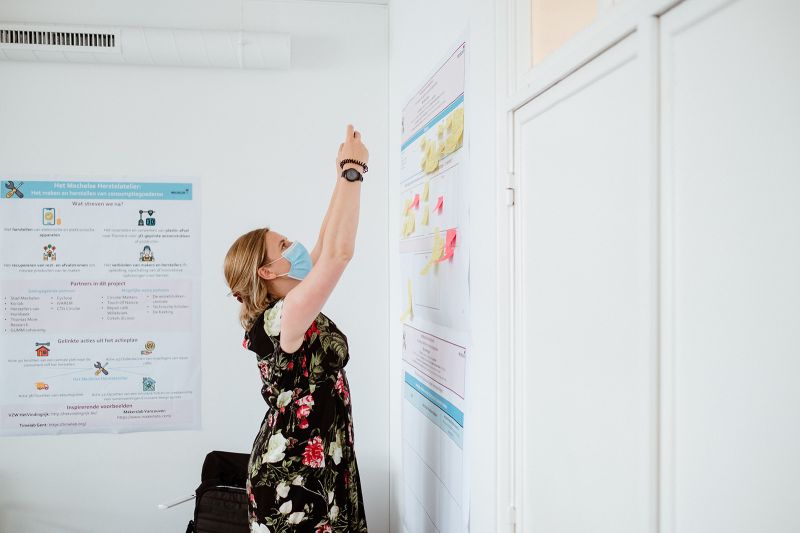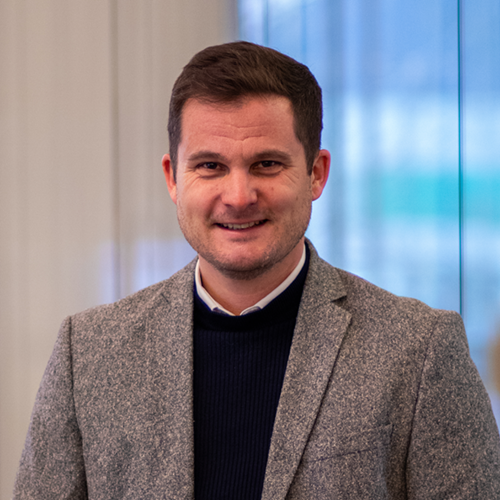Circular Mechelen 2030
Mechelen is one of the first Flemish cities to set a strong objective. By 2030, the city must use 50% fewer new resources. By 2050, Mechelen aims to be a fully circular city. To achieve this, the City of Mechelen will make its own purchases and construction projects more circular. Additionally, the city wants to support circular initiatives from Mechelen's entrepreneurs, researchers, civil society, and citizens by providing them with support, connections, and visibility. Mechelen should become the place to test, scale, and showcase circular ideas.*
After setting a long-term objective, developing a shared vision and action plan was an important next step in Mechelen. Most principles of the circular economy are originally written from a business perspective. So, how can a city make a meaningful translation?
As part of the URBACT network Resourceful Cities, the City of Mechelen enlisted the support of Möbius to help develop a shared vision and action plan for Circular Mechelen 2030. The aim was threefold:
-
To mobilise the local community and involve Mechelen's entrepreneurs and citizens in shaping the story.
-
To prioritise, in an evidence-based way, the concepts of the circular economy that are relevant to Mechelen.
-
To step-by-step outline what is needed for some impactful circular pilot projects to be carried out, thereby turning the city into a living laboratory for the circular economy.
In close collaboration with Mechelen's circular economy team, Möbius developed a process that combines analysis with participation.
Identifying promising urban value chains
First, we listed the benefits of the transition to a circular society for Mechelen, such as added economic value, CO2 and resource savings, and job creation in both the regular and social economy.
Then, we identified promising urban value chains (e.g. textiles, electronics, construction, food,...) by combining a quantitative analysis (based on employment figures, added value, and waste flows) with a qualitative analysis of the circular potential of a value chain. We evaluated the circular potential based on the extent to which activities could be carried out in the so-called inner circles (life extension through repair and reuse). We also looked at the extent to which trends (policy/legislation, market forces,...) could respond to the local context and contribute to an accelerated transition in a particular value chain. We also identified the circular 'enablers' (such as digital technology and reverse logistics) that Mechelen has at its disposal.
Towards a supported circular action plan
In three working sessions, Mechelen's stakeholders from five different backgrounds were brought together to obtain the requested vision and action plan: from public organisations such as the local intermunicipal, to Mechelen's (regular and social, starting, and established) entrepreneurs, citizen collectives, a local banker, and researchers from Mechelen's knowledge institutions.
The first working session aimed to validate the identified promising urban value chains and to establish a shared, ambitious goal for each.
In the second working session, we translated objectives into actions, using inspiring examples to stimulate the participants. We also took into account any ongoing projects and asked ourselves, 'What is needed to further grow and flourish existing initiatives in Mechelen'.
From more than 90 proposed actions, we then selected 5 impactful projects that generated a lot of enthusiasm to work on. A biolab for the valorisation of organic waste streams, a circular textile workshop to locally close textile loops, an urban mine for building materials to promote reuse, a furniture standard (from Mechelen) with standardised sizes to facilitate repair and reuse, and a production and repair workshop for electronics and other consumer products.
In a final workshop, where we finally met each other in person, we considered for each of these pilot projects the concrete steps that need to be taken to achieve the desired end result, and who or what we need to accomplish this.
The common thread during the deepening exercise for the five pilot projects was the role that De Potterij could play as a breeding ground for circular entrepreneurship and as a meeting place for circular doers in the city.
A perfect harmony between social and circular entrepreneurship
This initiative also contributed to the further development of the CE Hub Regio Mechelen, supported by ESF 'Circular Work(s)'. The hub aims to promote circular entrepreneurship and diversify and increase employment opportunities for individuals with barriers to the job market. Möbius' analysis revealed that a quarter of the circular jobs that will be created by 2030 in Mechelen are suitable for individuals in this target group.
Key elements for a successful urban circular action plan
What can we take away from the approach in Mechelen?
-
A city government alone cannot make the local economy circular. However, it does have a central role to play in making its organisation more circular, by bringing together stakeholders from different sectors and societal groups, supporting their bottom-up actions, and determining objectives, priority areas, and milestones.
-
Every city is unique. It is crucial to determine, in a well-informed manner and in collaboration with local stakeholders, the strategic areas that align with the socio-economic fabric of the city. A successful urban circular economy plan requires focus: knowing where to direct your efforts will accelerate its implementation.
-
Don't wait for the perfect vision or the exhaustive action plan. Just start, learn as you go, and adjust your action plan as needed.
You can find testimonials from Mechelen's circular entrepreneurs and an overview of what the City of Mechelen is doing to promote the circular economy at www.mechelen.be/circulairondernemen.










